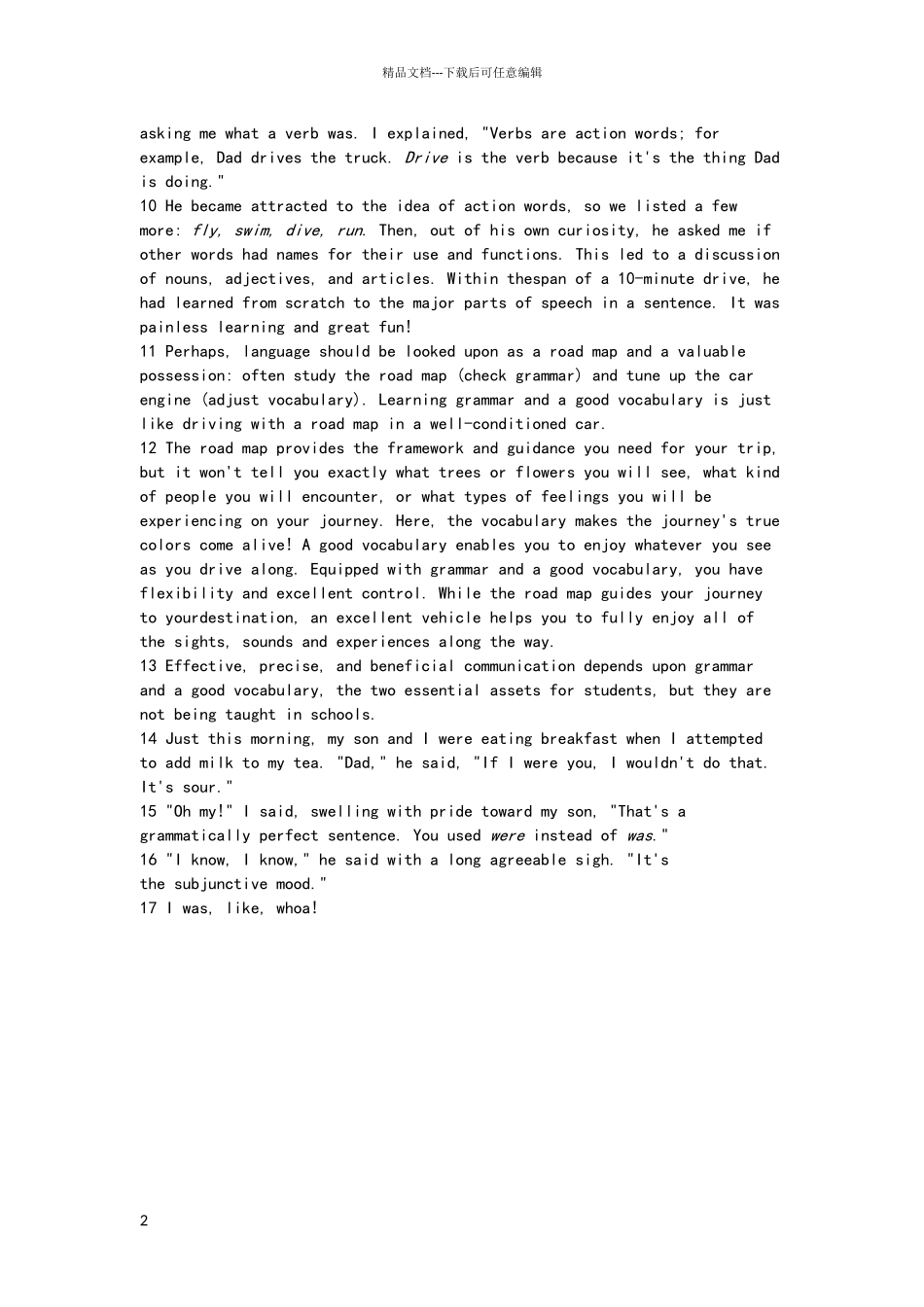精品文档---下载后可任意编辑An impressive English lesson1 If I am the only parent who still corrects his child's English, then perhaps my son is right. To him, I am a tedious oddity: a father he isobliged to listen to and a man absorbed in the rules of grammar, which my son seems allergic to.2 I think I got serious about this only recently when I ran into one of my former students, fresh from an excursion to Europe. "How was it" I asked, full of earnest anticipation.3 She nodded three or four times, searched the heavens for the right words, and then exclaimed, "It was, like, whoa!"4 And that was it. The civilization of Greece and the glory of Roman architecture were captured in a condensed non-statement. My student's "whoa!" was exceeded only by my head-shaking distress.5 There are many different stories about the downturn in the proper use of English. Surely students should be able to distinguishbetween their/there/they're or the distinctive difference between complimentary and complementary. They unfairly bear the bulk of thecriticism for these knowledge deficits because there is a sense that they should know better.6 Students are not dumb, but they are being misled everywhere they look and listen. For example, signs in grocery stores point them to the stationary, even though the actual stationery items — pads, albums and notebooks — are not nailed down. Friends and loved ones often proclaim they've just ate when, in fact, they've just eaten. Therefore, it doesn't make any sense to criticize our students.7 Blame for the scandal of this language deficit should be thrust upon our schools, which should be setting high standards of English language proficiency. Instead, they only teach a l...

